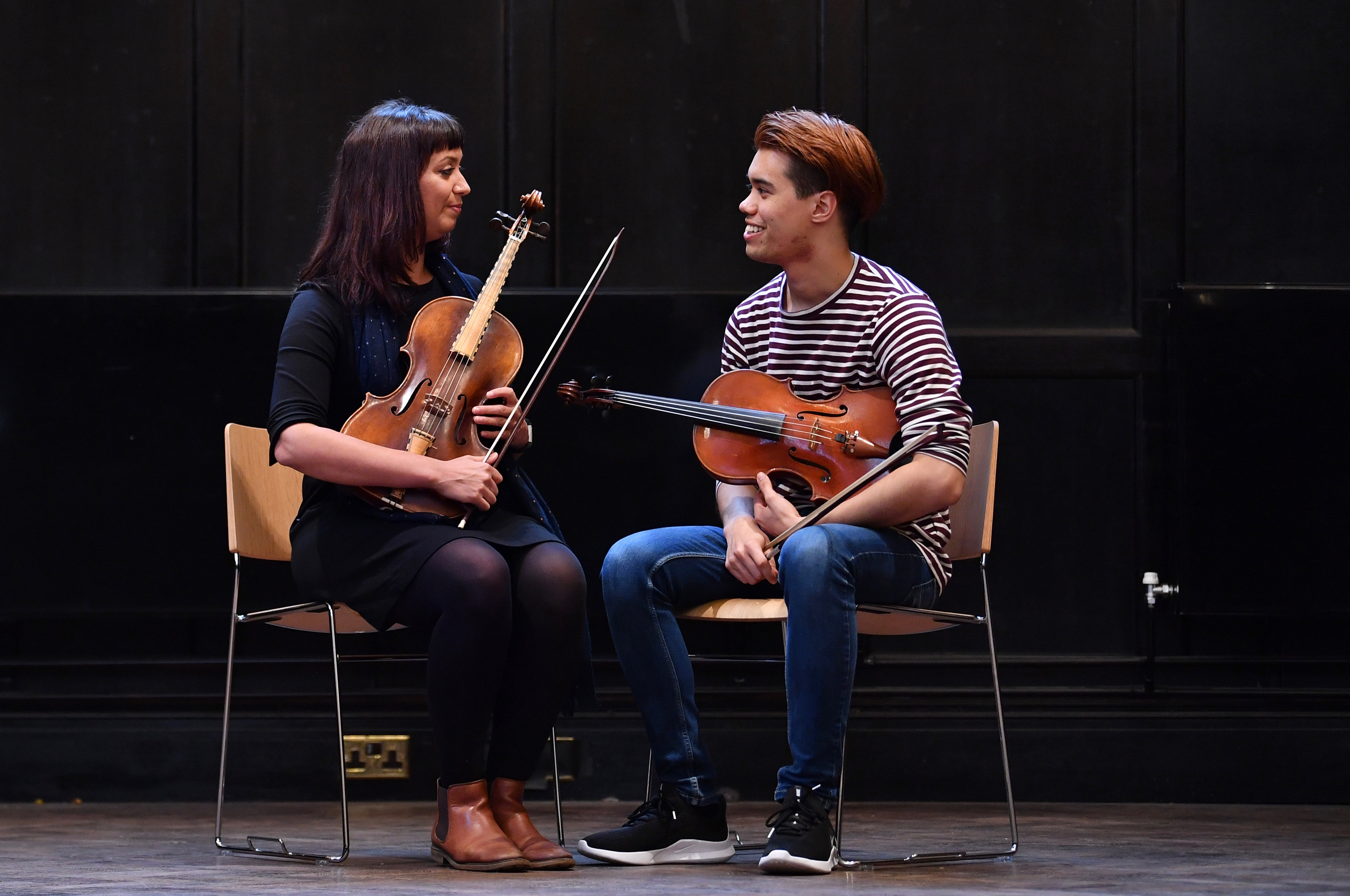Musicians brace for Brexit disharmony

Musician Aliye Cornish (L) and London-based Dutch viola player Michiel Wittink,a member of the European Union Youth Orchestra, pose for pictures in London on March 12, 2019. As the Brexit saga reaches a crescendo, classical musicians based in Britain fear that a disorderly divorce could threaten their European livelihood and stunt the development of potential maestros. Viola player Aliye Cornish told AFP she was particularly concerned because she is due to start a European tour in Spain on March 30— a day after Britain is scheduled to leave the EU. (Photo by BEN STANSALL / AFP)
LONDON — As the Brexit saga reaches a crescendo, classical musicians based in Britain fear that a disorderly divorce could threaten their European livelihood and stunt the development of potential maestros.
Viola player Aliye Cornish told AFP she was particularly concerned because she is due to start a European tour in Spain on March 30 — the day after Britain is scheduled to leave the European Union (EU).
“At the moment we have no formal guidance on how to prepare,” she said.
Like many classical musicians in Britain, Cornish spends months every year working in the EU.
Their concern is that bureaucratic uncertainty will mean missing out on jobs.
Article continues after this advertisement“I’ve heard stories of colleagues having offers of work retracted from ensembles in the EU 27, who are concerned there may be too many restrictions in place,” she said, taking a break from a rehearsal in the historic surroundings of London’s St Anne and St Agnes church.
Article continues after this advertisementPaul Smith, co-founder of the world-renowned Voces8 vocal ensemble, said Brexit was a central topic in discussions with promoters.
“There’s so much planning that goes into taking a group of musicians into Europe,” he said.
With a form from the tax authorities, British musicians can currently “hop on a Eurostar or a plane” and work in the EU, said Cornish.
“After March 30, we don’t know if the HMRC form will be valid, we don’t know if we will need passports for instruments, we don’t know if we will need work permits.”
Risk of red tape
Musicians may have to prove that their instruments do not contain endangered materials, throwing up the prospect of lengthy custom checks post-Brexit, she said.
“The worry is once you leave a common rule book. If you’re trying to get an orchestra from a rehearsal in London today to a concert hall in southern Spain tomorrow… you really don’t want to be stuck at a border for four hours while people pore over every key of your harpsichord,” she said.
Smith, a baritone singer, composer and conductor, said he too was concerned about the potential consequences.
“The longer we have to spend doing this (red tape) the less opportunity we have to do the core things we want to be doing — performance and inspiring the next generation of young people to fall in love in music,” he said.
Cornish used to play with the European Union Baroque Orchestra, which has relocated from Britain to Belgium due to Brexit.
He believes that young British musicians will miss out through not being able to play in EU projects.
“It gave me the chance to see countries I’d not been to before, to play music I didn’t know, meet people I wouldn’t have met otherwise and I came out of it knowing that was I wanted to do for the rest of my life.”
‘Bitterly divided’
Smith worries that without EU-funded projects, Britain “might end up in a cultural wasteland… with no support from the top down.”
He estimates that around 25 percent of the members of major British orchestras come from the EU, and that audiences could suffer if the talent pool was restricted.
London-based Dutch viola player Michiel Wittink, a member of the European Union Youth Orchestra, which has also moved from Britain to Italy, told AFP that the introduction of visas “would make it a different story” for continental musicians.
But he also thinks that if they “really want to come,” they will find a way.
“London is so big, and has so many orchestras in one city, there’s so much to do, there are amazing things to explore,” he said.
London’s showpiece classical music event, the Proms, has also found itself centre stage in the Brexit debate.
European flags were handed out at the final night, traditionally a colourful display of British patriotism.
Cornish, who took part in the initiative, said that “a lot of people really went for them.”
“It makes me sad to see how bitterly divided we are as a country,” she added. “It’s permeated into every facet of our lives.” /kga